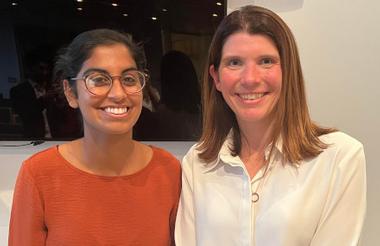Charity sector employers cannot compete with the commercial sector's salaries, but they can offer greater flexibility, the chief executive of NCVO has said.
Sarah Vibert was speaking at a discussion last week, at which one audience member asked whether charities could attract more younger people to the sector given they were unable to compete with the commercial sector in terms of junior salaries.
Indeed, a recent report by Pro Bono Economics found charity workers are paid 7% less per hour than their counterparts in the wider economy.
Vibert said: “We can compete on flexibility. Where you've got law firms saying you must be back in the office two days a week, we generally suspect that we are allowing a lot more flexibility and openness.”
A concept like Charity Next, a part of a graduate fast stream into the civil service that allows people to gain experience working in a charity would be brilliant, Vibert said.
She was speaking at a Charity Forum event, which is a group established in 1998 by the voluntary sector for the sector. She was joined by Noama Chaudhry, who is undertaking a degree apprenticeship at NCVO.
Is age diversity overlooked in the charity sector?
22-year-old Chaudhry is passionate about widening the diversity debate in the sector to include young people. She said while the diversity agenda has, “quite rightly” focused on race, it is often overlooked that the charity sector disproportionately employs older people.
She said: “I would suggest you take more of an intersectional approach because to be truly representative of the community we serve, the voluntary sector must also attract more young people. I started my internship when I was 19, and three years later I am still the youngest person in the organisation.
“With 6% of employees in the voluntary sector under 25, and less than 2% being 16 to 19, there is a significant lack of representation of younger generations in the workforce.”
Chaudhry feels easier entry points into the sector would help in bringing more young people into recruitment. She gave her route into the sector as a degree apprentice as an example – where a student can gain a masters or bachelor’s degree whilst working.
“It’s quite a low cost, high-value return,” for organisations, said Chaudhry.
Related articles











